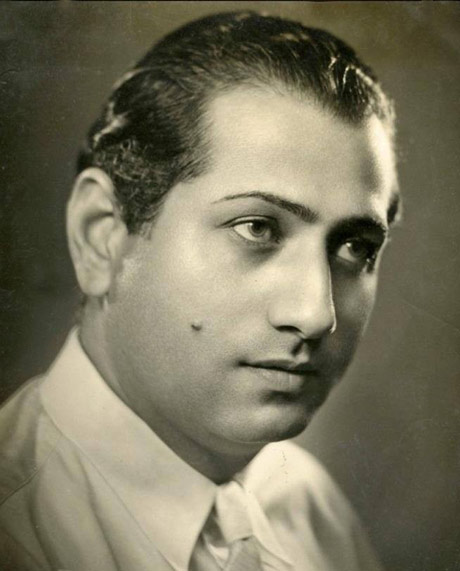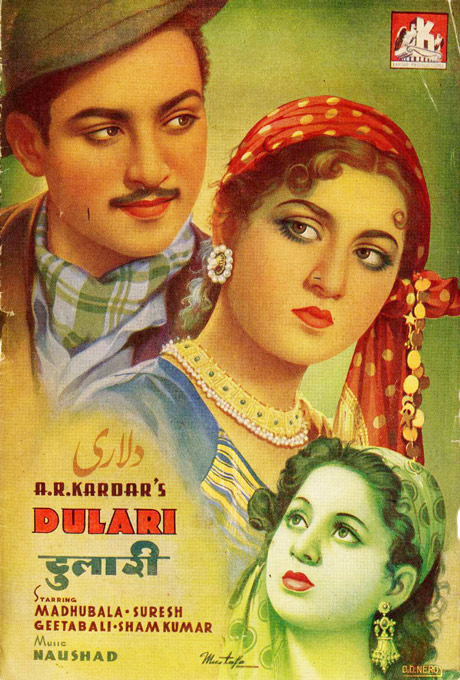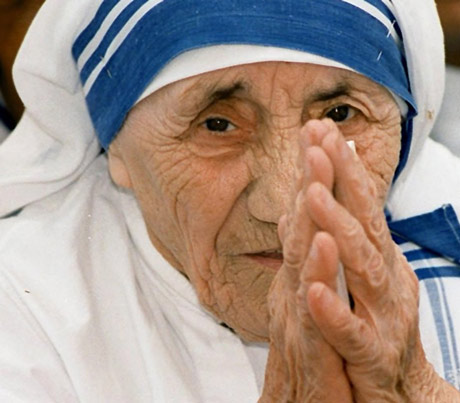Bollywood Masala Mix
AR Kardar

By Sonal Pandya
Hailing from Lahore, Abdul Rashid (AR) Kardar landed in Bombay in 1922 to work in its booming film industry. The talented young man was a good painter and knew still photography. He became a poster maker for foreign film distributors and made posters at Sharda Studio, but eventually returned to Lahore when he could not direct any films.
Kardar appeared in a few silent films like The Daughter Of Today (1928) and Husn Ka Daku (1929); filmmaker Vijay Bhatt gave the young man an acting part in Heer Ranjah (1929). That same year he founded United Players Corp with Hakim Ramprashad. The company later became Playart Phototone.
Kardar moved to Calcutta in 1933 and directed films for the East India Film Company for three years. He returned to Bombay and made films for Ranjit Studios and National Studios before launching his own Kardar Studios.
In an old interview published online, Kardar's daughter Yasmeen mentioned how Kardar Studios near the King Edward Memorial hospital in Parel, central Mumbai, was one of the best equipped in those days and the first to have air-conditioned makeup rooms. The prime property, eyed by local politicians and criminal elements alike, is today overrun by illegal motor garages.
Yasmeen recalled that her father was an artist-director and made all his films with almost German precision. He was very precise and knew exactly what he wanted out of the artistes and how to get it out of them, she said.
The filmmaker, fondly known in the industry as ‘Miyanji’, was a founding member of what is now The Film & Television Producers Guild of India, along with stalwarts like V Shantaram, Sohrab Modi, Vijay Bhatt, Mehboob Khan and Raj Kapoor.
Over a span of three decades, Kardar Studios produced hits like Shahjehan (1946), Dard (1947), Dulari (1949), Dillagi (1949), Dastan (1950), Yasmin (1955), Do Phool (1958) and Dil Diya Dard Liya (1966). The last named, Kardar's comeback film, starred Dilip Kumar and Waheeda Rehman and was based on Emily Brontë's 1847 novel Wuthering Heights.

Kardar gave a break to filmmakers like Nasir Husain (who wrote for him), M Sadiq and SU Sunny (who directed films for his banner).
Others, too, got an opportunity to shine under Kardar. Naushad was first noticed as a film composer with Kardar's Sharda (1942), where a teenage Suraiya sang a song for Mehtab, and Nai Duniya (1944). He became a top composer after Rattan (1944), directed by M Sadiq, and charged Rs25,000 per film.
Kardar first heard lyricist Majrooh Sultanpuri at a mushaira (poetry gathering) and suggested his name to Naushad. And, of course, young Suraiya was first given a chance to sing in Sharda (1942). The great Mohammed Rafi’s first big hit was 'Suhaani Raat Dhal Chuki' in Kardar's Dulari (1949).
In the last decade, photographs from 1951 emerged featuring Kardar auditioning hopeful young actresses for a role in his upcoming film. They were taken by photographer James Burke for LIFE magazine and featured a young woman wearing a sari, undressing down to her undergarments. A similar scene was recreated in the recent film, Manto (2018), directed by Nandita Das, which referenced the era in which Kardar worked.
Kardar even launched a contest to find the next stars of the film industry. It was called the Kardar-Kolynos contest. Actress Chand Usmani and singer Mahendra Kapoor were the lucky winners who received a launchpad into the film industry.
Over the course of his long career, AR Kardar worked his way up the ladder from poster maker to studio owner. From the silent era to the talkies, from black and white to colour, the filmmaker saw it all. He died at the age of 85 on 22 November 1989.

“I believe my calling to life is to be an entertainer. The best thing I can do with myself is to fulfil what I think is my purpose in life and that is to do my best and to entertain people. When it comes to being a responsible citizen, I think I am,” Ranveer said when asked about his responsibility as an actor and an Indian citizen.
“Yeah, I met the Prime Minister recently and we had a pleasant meeting. We apprised him what we, as young members of the film fraternity, are doing. He had something to say to us, which was ‘if possible, we should choose content that has in it a message of inclusive India and unity’,” he said.
The actor opened up about the conversation, that ensued during a meeting with Modi earlier this year, at an event of 64th Vimal Filmfare Awards in Mumbau last week Monday.
Ranveer along with Karan Johar, Varun Dhawan, Alia Bhatt, Ekta Kapoor and Rohit Shetty were discussing the ways in which the film industry can contribute to nation building.
The “Simmba” star said his forthcoming film “83” is in sync with the theme.
“I was happy to report to him that my very next project ’83’ is one such film, where it is truly team India. You have gentlemen from all across the country coming together to make the nation proud. It’s also an extraordinary underdog story that I’m very happy and proud to be a part of.”
Ranveer will be essaying the role of legend Kapil Dev in “83”, which will bring the story alive on the big screen how the Indian cricket team clinched the cricket World Cup in 1983.
Directed by Kabir Khan, the film is presented by Reliance Entertainment and produced by Madhu Mantena, Vishnu Induri and Kabir.

Written and directed by Seema Upadhyay, the film, announced on Monday of last week, will have a cast of Indian and international actors.
The makers met Sister Prema Mary Pierick, the current Superior General of the Missionaries of Charity, and Sister Lynne in Kolkata recently to seek their blessings for the project on the life of the iconic nun who came from Albania to India in 1929 and set up the Missionaries of Charity in 1948.
Upadhyay said in a statement: “We visited the Missionaries of Charity in Kolkata and the experience was surreal.”
“She is a global icon and we will ensure to leave no stone unturned to meet her international stature and pay our tribute to the noble soul. We hope we will do justice and will be able to spread the message for peace, love, and humanity that Mother Teresa stood for,” the producers said in a joint statement.
Facebook announced Thursday that it had signed licensing deals with some of the biggest record labels in India's top film industry, otherwise known as Bollywood. The deals will allow Indian users of Facebook and Instagram to add songs to their posts.
The announcement comes two days after Google rolled out YouTube Music in India. The music streaming version of the video platform, which launched in the United States last year, will charge Indian users only 99 rupees ($1.50) a month for a service free of ads.
That's slightly cheaper than Spotify which launched in India late last month with a price tag of 119 rupees ($1.65). Both services are more than 80% cheaper in India than in the United States.
ndian users of another Google streaming service, Google Play Music, will automatically get access to YouTube Music, the company said.
The market for Indian music fans — like the one for its internet at large — is getting increasingly crowded. Besides global rivals like Spotify, Apple and Amazon, the Indian market is contested by local players like Gaana, backed by Chinese tech giant Tencent, and JioSaavn, owned by India's richest man, Mukesh Ambani.
They're all drawn to India's 560 million internet users, second only in number to China. And with more than 800 million Indians yet to come online, the country's internet user base could hit 850 million by 2025.
YouTube already dominates the Indian market for video and its share is growing. The platform revealed last year that it has 245 million monthly active users in India. Video streaming accounts for 75% of the country's mobile data traffic, according to Google.
Bollywood's biggest record label, T-Series, is one of the labels that licensed its music to Facebook last week. It also signed a deal with Spotify ahead of the company's India launch.
"One video with music and lyrics connects with billions across India and the planet ... and where do they connect? Social media," T-Series chairman Bhushan Kumar said in a statement.
The music label is already one of YouTube's biggest players, and is challenging Sweden's PewDiePie to become the platform's most-subscribed account.